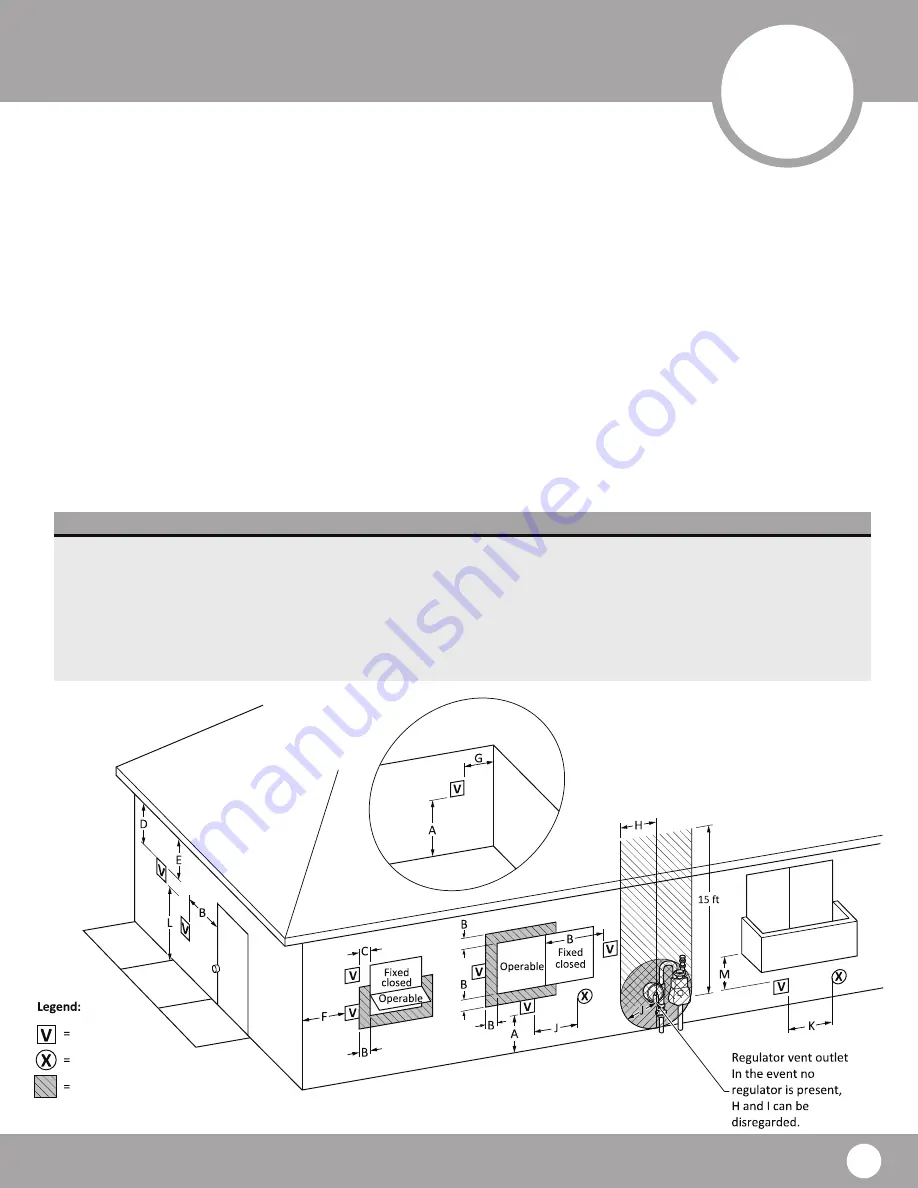
NOTE
32
mrcool.com
14
Selecting a Vent Type
The water heater uses 2 in. diameter exhaust and 2 in. diameter intake air ducts. To ensure the draw of air
directly from and exhaust of air directly to the outside of the building, create an airtight seal from the water
heater collar to the vent termination.
Intake materials can be made of ABS, PVC, CPVC, PP, galvanized steel, corrugated aluminum or any other such
materials. If you use a corrugated material, ensure that there is not crimping or damage to the intake air pipe.
When using direct venting, maintain the following venting clearances, as required by ANSI Z21.10.3 and the
National Fuel Gas Code, ANSI Z223.1/NFPA 54, and CAN/CGA B149.1 Natural Gas and Propane Installation
Code:
Failure to provide a properly installed vent and air system will cause personal injury or death!
The water heaters referenced in this manual are classified as Category IV appliances and
are prepared at the factory to be direct vent (sealed combustion) appliances that draw all
of their required combustion air directly from the outdoors. The manufacturer recommends
direct air vent installations whenever possible to avoid the back-drafting of cold air through the water heater. If
you cannot use a direct vent, ensure that there is an ample supply of usable air available in the installation
location.
The manufacturer also recommends installing a new vent system with this appliance. In the event an existing
vent system is reused, ensure it is thoroughly inspected for punctures, cracks, or blockages before it is
connected to the water heater.
Direct Venting
Vent Terminal
Inside Corner
Detail
Air Supply Inlet
Area where vent terminal
is not permitted
These installation instructions reference snow levels in establishing a minimum height for the
installation of the exhaust vent or air intake terminations. Snow levels are determined as follows:
The installation location, by ordinance, designate the calculation of the snow levels in that
location.
In the absence of specific ordinances, snow levels should be calculated from the average of
monthly maximum depth of snow accumulation as indicated by the 10 year statistics for the
installation/geographical area by the National Weather Service.
a.)
b.)
Fig. 14.1






























